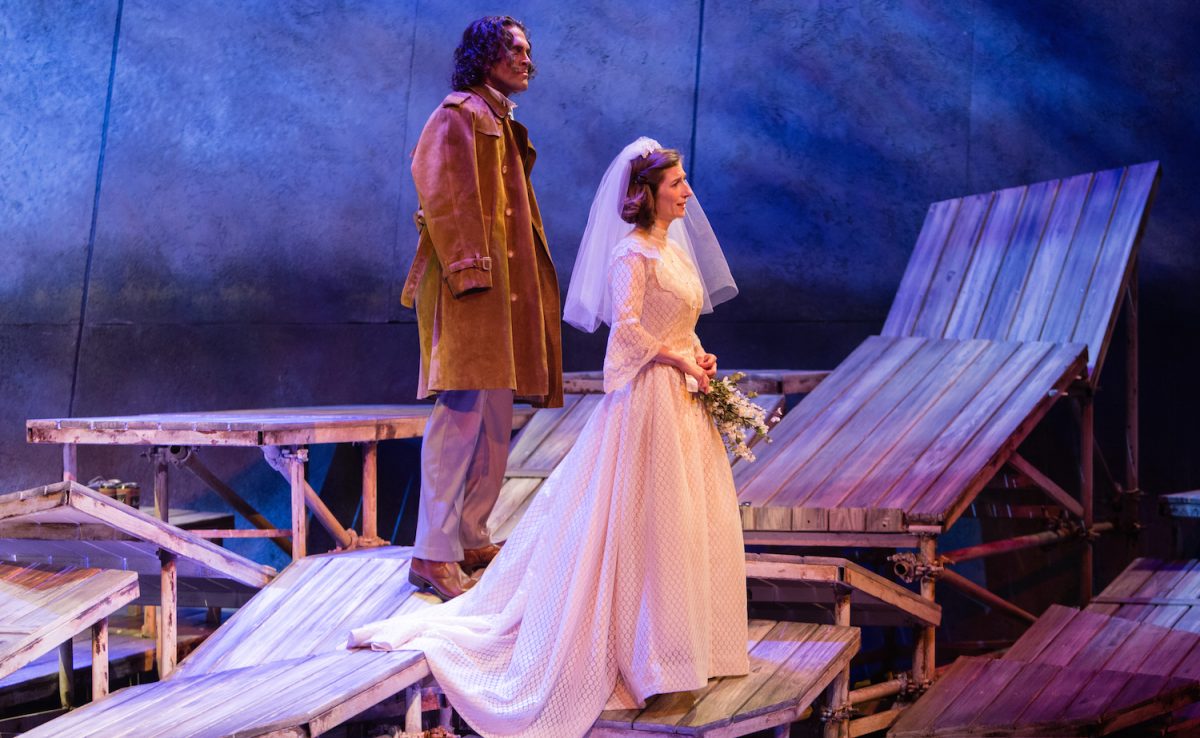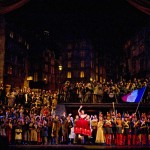Opera composers and their librettists have always mined familiar stories for inspiration and, in the past two decades, movies have provided especially rich source material. This year alone brings the upcoming Houston Grand Opera premiere of It’s a Wonderful Life by composer Jake Heggie (whose credits also include Dead Man Walking), and the Salzburg Festival debut of Thomas Adès’ The Exterminating Angel, based on Luis Buñuel’s surrealist film.
In one particularly anticipated effort, the composer Missy Mazzoli (above) and librettist Royce Vavrek have turned to Lars von Trier’s bleak, soaring 1996 film Breaking the Waves as the subject of their second collaboration. It premiered on Thursday night at Opera Philadelphia.
In developing an article for The Guardian about this production, I asked Mazzoli if having a cinematic foundation is needed to help promote and market a new opera, an inherently risky endeavor in this day and age.
“A little bit,” she said, “but the thing with films is, 90 percent of operas are based on something else. Carmen, Madam Butterfly — all these operas came from something else. And I do think it’s useful in terms of giving the audience something to hold onto.
“But for me, more importantly, it was very useful, since I’m early in my career writing opera. It was a very new, challenging thing for me. To have a story that was rock-solid. I didn’t have to worry about the bones of the story being weak.”
Von Trier’s Breaking the Waves isn’t universally beloved – some viewers found it practically unwatchable, for various reasons – but it’s hard to ignore if you’re interested in modern independent filmmaking. Mazzoli noted that the film featured no underscoring to provide emotional cues, so she had an essentially blank canvas to work with. By contrast, von Trier added a grandiloquent symphonic overlay for 2011’s Melancholia, which incorporates the Prelude to Wagner’s Tristan und Isolde.
In a short Skype interview, von Trier told me that he was pleased to see other artists adapting his work, and wasn’t going to interfere with Mazzoli and Vavrek’s approach. He also reflected on his own experience with the opera world: he was scheduled to direct a production of Wagner’s Ring Cycle at the 2006 Bayreuth festival, but withdrew early on.
“It turned out that I was far too ambitious,” he said. “Of course, making the Ring in Bayreuth would be the thing to do if you were interested in Wagner. I worked on it for two years and I asked a producer, ‘how much of this do you think will come through? If we’re talking about 70 percent, maybe I’m interested. If it’s 30 percent… you know.’”
Von Trier soon realized that Wolfgang Wagner, the composer’s grandchild and then director of the festival, had a significant input in the final product – a red flag for von Trier. “I talked to other directors that worked there and since I was so ambitious and had not made opera before, maybe it was unrealistic. It is quite complex.”
Von Trier had one other amusing point on the subject of opera audiences. “I always get surprised by the emotional response by the audience,” he said. “People who go to operas are civilized people who suddenly use their feet to stomp. It seems very strange from the outside.”
Photo: Breaking the Waves at Opera Philadelphia, based on the Lars von Trier film (photo: Dominic M. Mercier)








Leave a Reply